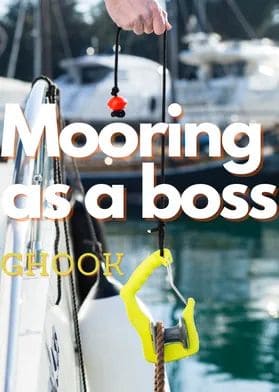Boat Battery Sales
On this page, you'll find a catalog of new boat and yacht batteries available for sale on our marketplace. We invite you to check out our prices for batteries and, if needed, consult with our staff via the contact information on our website before making a purchase.
All boat batteries come with an official warranty from the manufacturer. We offer delivery to almost any location worldwide using well-known courier services.
About Boat Batteries
For autonomous power supply of a boat electric motor, navigation instruments, lighting devices and other energy-dependent equipment on water equipment, a battery is required. It must be designed for harsh operating conditions, withstand strong vibration, and not be afraid of deep discharges and moisture.
Types of Batteries for Yachts and Boats
Before you start choosing a battery, you need to understand the different types that can be used on different vessels.
Lead-Acid
The most common type of batteries, which are lightweight and affordable. They are suitable for most boats, but require regular charging and maintenance.
They are constructed with lead plates (or lead-carbon composite plates) immersed in a sulfuric acid solution. These batteries have a high capacity and can withstand deep discharges without compromising the capacity. However, they require regular maintenance to maintain the correct electrolyte level and check the condition of the plates.
Gel Batteries
They are more expensive, but have a long service life and can withstand heavy loads. They use gel instead of liquid electrolyte, making them safer and more resistant to damage. Gel batteries have a high capacity and can withstand deep discharges. They also have a long lifespan and require minimal maintenance, but still require regular inspection.
Lithium-Ion
They have a high energy density and low weight, making them an ideal choice for boats, but their cost can be significantly higher than other types. Lithium-ion batteries also have a long life and can be charged quickly. They are maintenance-free and have high charging and discharging efficiency, but require proper charger and temperature control. They are suitable for speed boats and are the most advanced option.
The choice of battery for a yacht or boat depends on many factors. Each type of battery has its own advantages and disadvantages, and the choice should be based on the specific needs and requirements of the boat owner. Regardless of your choice, proper battery maintenance and charging are key to long, reliable battery life.
Determining the Required Battery Power
Determining the necessary power for your yacht is important when choosing a battery. It will help ensure reliable power to electronic devices on your boat and prevent power outage problems.
The first step in determining how much battery power you need is to evaluate the power consumption of the various electronic devices on your boat. Include all devices that will be used on the boat, such as the engine, lighting, radio, navigation systems, fish finders and other instruments. For each device, determine its power consumption in watts or amps.
Once you have determined the power consumption of each device, add all the values together to get the total power consumption. This will give you an idea of how much energy the boat will be using at any one time.
The next step is to determine the battery life. Determine how many hours per day you plan to use each device on the boat. Please note that some devices may be used constantly, while others may only be active for a certain period of time. Add up all operating hours for each device.
Then multiply the total power consumption by the total operating time to determine the total energy the battery needs to provide. This will give you an idea of the required battery capacity in amp hours (Ah).
However, when choosing a battery, there are some factors to consider that may affect its performance. For example, it is recommended to select a battery with extra capacity to account for possible changes in power consumption or additional devices that may be added in the future. Also note that batteries have different charging and discharging efficiencies, so it is recommended to choose a battery with power reserve.
In addition, it is worth considering the operating conditions of the battery. For example, if you plan to use your boat in cold conditions, you may need a battery with a higher capacity, as cold temperatures may reduce its performance.
Determining the required battery capacity for your vessel is an important step when choosing a battery. Evaluating the power consumption of each device and determining the operating time will help determine the total energy that the battery needs to provide. Also consider additional factors such as capacity reserve, charging and discharging efficiency, and operating conditions. Choosing the right battery will provide reliable power to your boat and help you avoid running out of power.
Key Factors When Choosing a Battery
In addition to the type and power, when choosing a battery for a yacht, there are other important factors to consider:
- size and type of vessel - large boats and yachts require more powerful batteries than small ones;
- number of electronics on board - if your boat has a lot of electronic devices installed, such as fish finders, radios, etc., then you need to choose a more powerful battery;
- sailing time - if you plan to spend a long time on a boat or boat, then you need to choose a battery with a large capacity to avoid problems with power supply while sailing;
- climatic conditions - in cold waters the battery may discharge faster, so it is necessary to choose a more powerful option;
- quality and reliability of the manufacturer - it is better to choose batteries from well-known and trusted manufacturers in order to avoid searching for a warranty workshop in marinas, as well as to eliminate as much as possible problems with quality and a shortened service life;
- warranty and service – when purchasing a battery, make sure it has a warranty and access to service so that you can get help if necessary;
- price – you shouldn’t skimp on the quality of the battery, but you shouldn’t overpay for extra power or features that you won’t need.
When choosing a battery for your boat, it is recommended to pay attention to the reputation of the manufacturer, the quality and durability of the battery, and whether it suits the requirements and needs of your vessel. The best manufacturers of boat batteries offer a wide range of models that can meet the different needs and requirements of the boaters.
Examples of Battery Systems for Yachts and Boats
Battery systems are an important part of the electrical equipment on boats and boats. They provide power to various electronic devices and systems on a boat, such as lights, radios, navigational instruments and even the engine. Let's look at a few examples of battery systems that are widely used.
Standard Battery System
A standard battery system includes one or more deep-cycle batteries that provide power for electronics and other systems on board. This system can be connected to a charger that charges the batteries from shore power or from an onboard generator.
Dual Battery System
The dual battery system consists of two separate batteries that operate in parallel to provide reliable power to the boat. One battery is used for the main electronic devices and systems, and the second battery serves as a backup and can be used in the event of failure of the main battery.
Another example is the use of two batteries of different power. One will be used to power the electronics, and the other will be used to start the engine. This option will provide reliability and ease of use.
Battery System with Inverter
An inverter battery system allows you to use direct current (DC) from batteries to power alternating current (AC) devices such as a refrigerator, microwave, or television. The inverter converts direct current into alternating current, which allows the use of various devices on the ship.
Solar Battery System
One example of an effective battery system for a boat is the combination of a gel battery with solar panels. This option is suitable for long sailings and will save on charging from the network. A solar battery system uses solar panels to charge batteries on a boat. This is an environmentally friendly and energy efficient way to generate electricity on board. Solar panels can be mounted on the roof of a boat or boat and connected to a battery system to charge the batteries.
Generator Battery System
A generator battery system uses a generator on board the boat to charge the batteries. The generator can run on diesel or gasoline and provides constant power to the batteries. This system is especially useful on large ships where large amounts of electrical power are required.
When choosing a battery system for your boat or boat, you should consider the needs and requirements of your vessel. Different systems may be more suitable for different types of vessels and uses. It is also important to pay attention to the quality and reliability of the batteries, as well as how they will be connected and charged on the boat.
Frequently Asked Questions About Choosing a Battery for a Boat
What type of battery is best for a boat?
The most common types of batteries used on boats are deep cycle batteries. They are specially designed for high loads and repeated charging and discharging cycles. Deep cycle batteries provide stable power over a long period of time and have a large capacity, which is especially important for boats and boats.
topRik marketplace provides yacht and boat owners with a large selection of deep cycle batteries of various capacities and different types (helium, AGM).
How to determine the correct battery voltage?
Battery voltage is also an important factor when choosing a battery for your boat. The most common boat battery voltages are 12 Volts and 24 Volts. To determine the correct battery voltage for your boat, you should consider the requirements of the electronics and other systems on the boat. If you already have electronics installed, you should choose a battery with the appropriate voltage.
How to maintain and charge the battery on a boat?
Maintaining and charging your boat battery plays an important role in its longevity and performance. It is recommended to regularly check the battery charge level and maintain it at an optimal level.
To charge the battery, you can use a charger that connects to a power source on shore or to a generator on board. You should also pay attention to the correct connection of the battery and follow the manufacturer's instructions.
Can a car battery be used for a boat or boat?
Yes, this is possible, but car batteries are not designed for this kind of load and operating conditions (humid environment, shock load during waves, etc.) and may fail faster.
How often do you need to charge your boat battery?
It all depends on the type of battery and operating conditions, but on average it is recommended to charge the battery after each trip.


